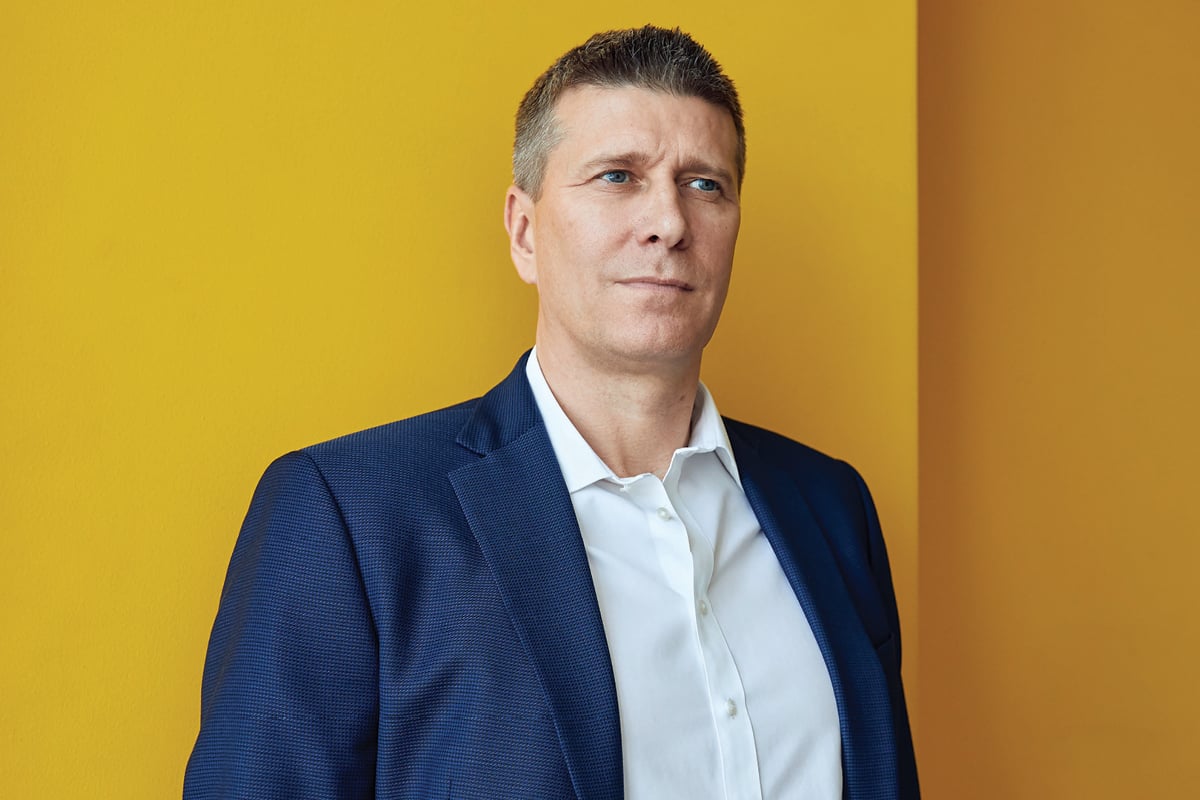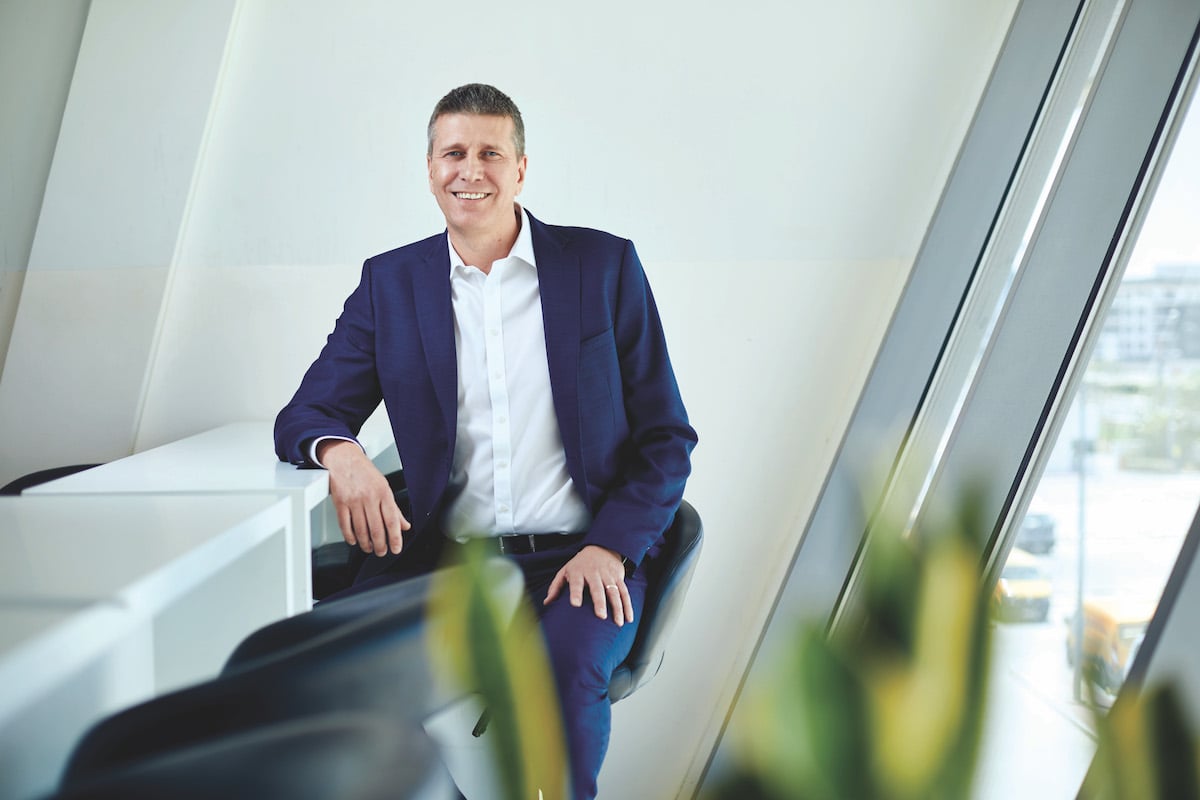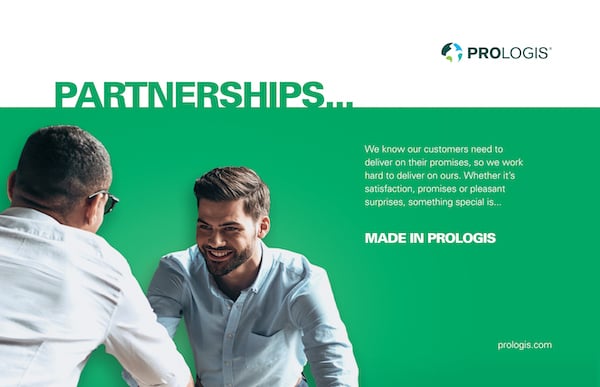David Christmas has spent more than two decades of his career ‘delivering’ for companies and people. Despite the indication given by his name, it’s not because he’s related to Santa Claus.

It’s because he is the current CEO for the MEA division of DHL Supply Chain, a role he took on at the beginning of 2018. Prior to joining DHL in 2004, he spent almost nine years with UK’s Royal Mail and also at Kuwait Petroleum. He has lived in six countries and managed in 55.
Twenty years in any industry is a long time, but David claims that everything still feels new to him. “The best thing about the industry I am in is its breadth of activity,” he says.
“The best thing about the industry I am in is its breadth of activity.”
“DHL operates in every sector, whether it is energy, consumer, retail, manufacturing, technology, automobility or health care. We run other companies’ supply chains, which gives our work huge variety.”
For the MEA division that David leads, a big part of the variety comes from challenges that are unique to the region. “Transport infrastructure aren’t always great in the markets I look after,” he points out. “But in our industry, timeliness is always important and if it is not achieved, the repercussions can be quite significant.”
The urgency is felt most strongly in the energy sector in the Middle East, where, as one may expect, oil exports are an important part of the economy. “We have to help keep the oil pumping,” David emphasises. “If we were to let any part of the operation down, the consequences to our customers could be huge.”
Another critical sector is medical and healthcare, which often requires temperature-controlled deliveries to hard-to-reach regions, made under the additional pressure of having human lives at stake.
In Uganda, the firm has taken to delivering vaccines by drones to remote areas, significantly simplifying the supply chain. Given these challenges, it’s a good thing David has DHL’s extensive resources at his disposal.
“What we bring to the table that not many of our competitors can is the sharing of best practices across geographies,” he explains. “This is particularly important in the MEA region, where many of the markets are still developing. We strive to share solutions with our customers that have proven effective in more mature markets around the world so they get an insight into what can be achieved.”

While the challenges are unique, so are the opportunities. “Outsourcing in the MEA markets isn’t as common as it is in other parts of the world,” David says.
“Often, when we get a new customer, it may be the first time the company is outsourcing its supply chain to a third party, so there are many more opportunities for us to get our foot in early.”
Although the bottom line is important to every business leader, it’s not the only thing that drives David. “DHL is by far the largest supply chain business in the world, but I don’t believe that scale is everything. It is only one indicator of success. What’s also important to us is to deliver excellence consistently so that our customers choose to use us time and again, and we can grow with them.”
“I also believe that you can’t run a successful business in today’s world without finding the right combination of people and technology; you need both passionate people and industry-leading technology.” he continues.
And one cannot speak about passionate people and technology without alluding to DHL’s stellar Corporate Social Responsibility programs. Working closely with the UN, the firm runs an emergency response team that is deployed to disaster locations on short notice to help deliver aid efficiently. The team’s most recent mission is in Mozambique, due to Cyclone Idai.
Indeed, big corporations like DHL have the potential to make a massive impact on the emerging markets they are in, a fact that David never allows himself to forget.
“We have more than 500,000 people in our business and many of them rely on DHL for their family’s wellbeing. Knowing this gives a lot of meaning to my work. These employees not only take a lot of pride in the company, but also really need us,” he says.
“In my professional life, I’ve always tried to take the path less travelled and to take on more difficult business opportunities in more vibrant geographies. It gives me more chances to make a difference.”
Proudly supported by:



